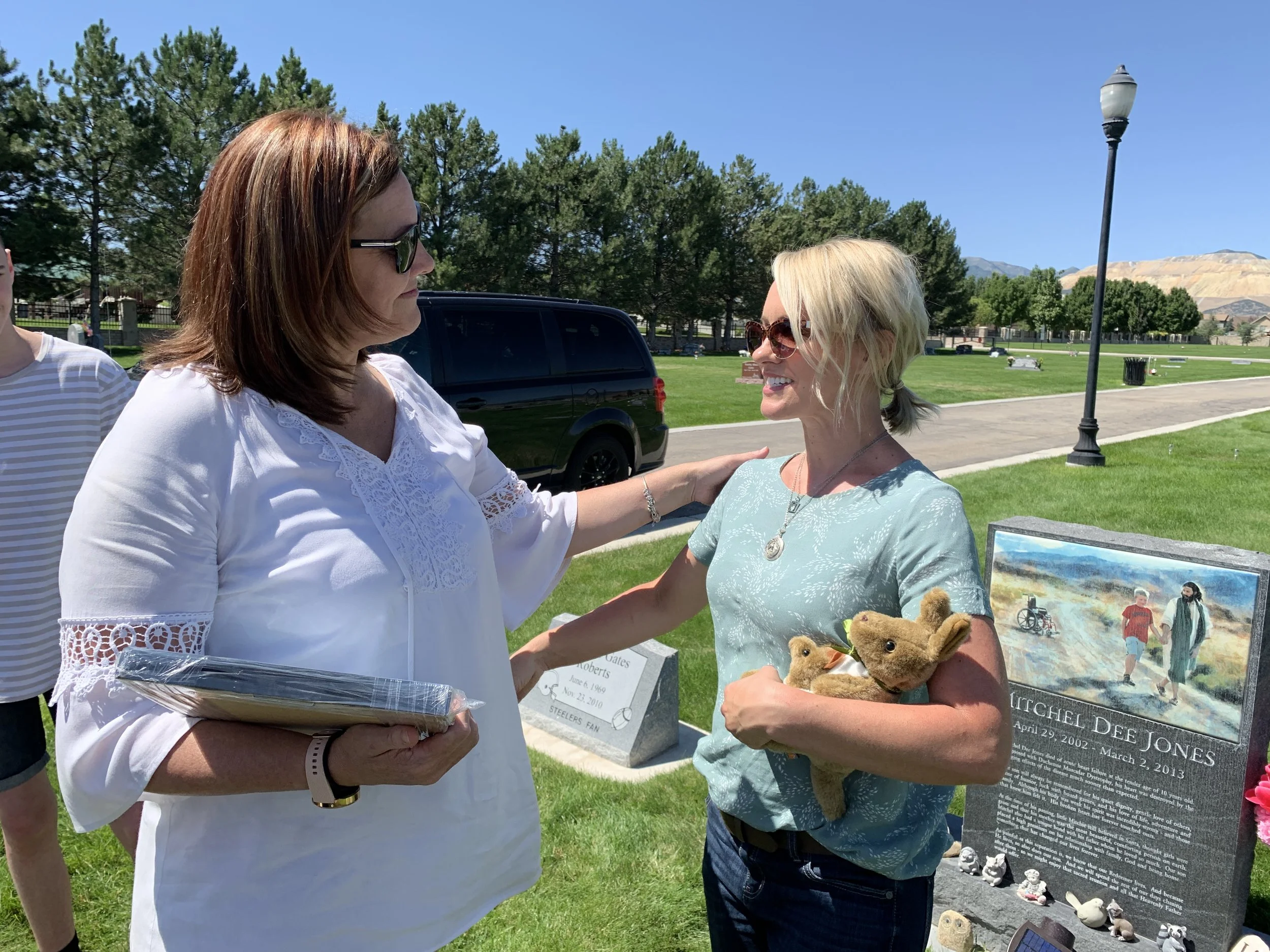When Mitch was diagnosed, doctors and other professionals warned us marriages in our circumstance (the death of a child) don’t often last. Some were so bold as to say the odds were against us. It would have been neat if some of them said, “But here are some things you can do, or places to go, to keep your family together.” Instead, we received a double prognosis: “Your son will die, and you will probably lose your spouse in the process.”
I lost count of the times I wept at our kitchen table in the middle of the night, pouring over textbooks about my son’s muscle-wasting disease. I was reading books meant for doctors, and they offered brutal, candid characterizations about the realities in coping with progressive neuromuscular disease. I wanted to know the hard truths – no matter how much they hurt. I didn’t care about the scientific jargon many newly diagnosed families cling to. I just wanted to know the hard realities; I wanted to know what the hurricane looked like on the inside so I could prepare my family on the outside.
Fast forward seven years and my sweet son was home on hospice – at least a decade earlier than anyone anticipated. The hurricane I had prepared for never came – and we were met by a tsunami of other troubles. However, the few weeks Mitch was home with us were some of the most sacred moments of my life.
So, when Natalie and I stood in front of each other at our son’s viewing, we faced a new set of challenges. Everything we experienced up to this point was easy compared to what would follow. Even death is no match for grief.
Grief is a long, dark night of the soul. All the Sunday school lessons, derashas, khutbahs, and sermons we may have grown up with may be informative, but they do not take away the pain of loss. Dolling out spiritual platitudes and the casual dismissal of sorrow from people in our respective faith communities only seem to compound the weight of loss.
At one point, I wrote an essay entitled, “When there’s no room for grief,” which explores the often subtle and hurtful ways people respond to those who suffer. At least in my belief circles, the admonition for people to “mourn with those that mourn” isn’t a sticker we put on a fridge or scribble inside our scriptures so we can feel good remembering a phrase. Instead, it’s an invitation to do deep work – and it’s not easy or comfortable. Mourning with those who mourn implies you, too, will taste sorrow.
Over the years, I’ve discovered the beautiful, transcendent spiritual practice of intentional empathy – and what it truly means to mourn with those who mourn. It heals both the sufferer and the person trying to offer comfort. It doesn’t fix everything in a moment, but it does give us a moment to put a broken piece back in its proper place. For many, grief is the work of a lifetime.
Not long ago, I was reading a thread on Mitchell’s Journey. I care a great deal about this community and the burdens everyone carries – and I carefully read all your comments. It’s not my place to weigh and measure one’s suffering against another, and I’ve learned to respect all suffering as sacred. I recall a woman sharing a deep loss she recently experienced and how she didn’t know how to go on. At that moment, I recognized her words as my own at times. I saw a beautiful soul who suffered and, at the same time, thought to myself, “and yet you go on.”
The human story is filled with examples where, despite unimaginable heartache, we go on. We often tell ourselves, “I could never deal with ____.” Until we have to. What I’ve observed talking with thousands of you over the years is the human race is resilient – and we find ways to go on. But we don’t need to travel alone - and when it comes to mourning with others, it seems there are many who talk about it - and precious few who do it.
Just today, I recorded a keynote for a group in Israel who is preparing for a virtual conference in December. I’ve grown to know some of them over the years and admire the good work they are doing to help children who live with various forms of muscular dystrophy. In that address, I said, “I think it’s safe to say I’ve been to hell and back. But I’m back, and I have a story to tell – and that story is happiness is often found where we least expect it.”
Over the next few months, I hope to share stories where our family discovered joy in the in-between, ordinary moments of life and how some of those moments helped me find new ways to face another day … and go on.













